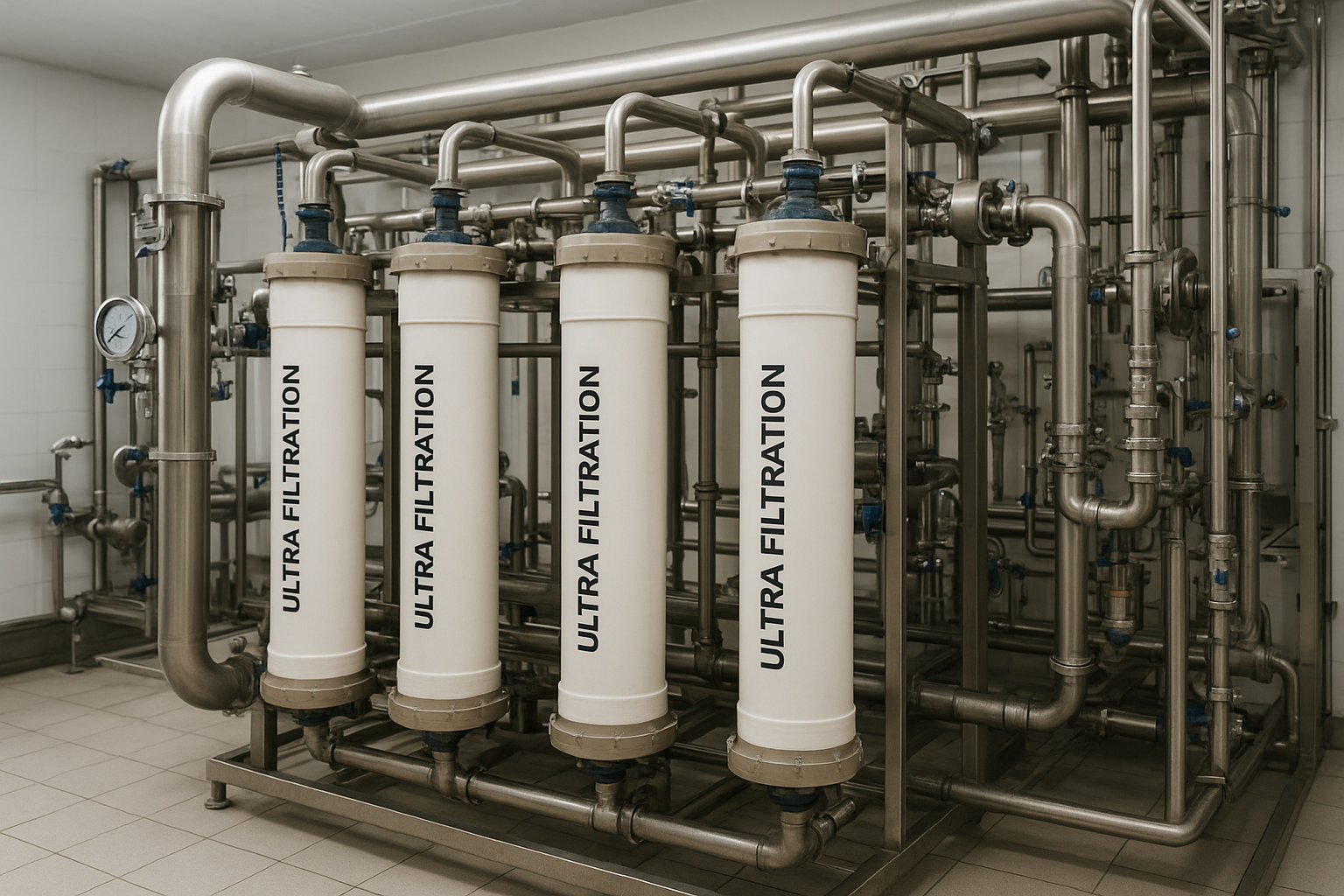Introduction
Water contamination is a global challenge, affecting health, industries, and the environment. To meet the growing demand for clean water, advanced treatment technologies like Ultra Filtration (UF) Plants have emerged as reliable solutions. UF plants use a membrane filtration process to remove suspended solids, bacteria, viruses, and other impurities from water without altering its natural minerals.
In this article, we will explore what Ultra Filtration Plants are, how they work, their benefits, applications, and why they are essential for water purification systems today.
What is an Ultra Filtration (UF) Plant?
An Ultra Filtration Plant is a water purification system that uses a semi-permeable membrane to filter out contaminants. The UF membrane has tiny pores (0.01–0.1 microns) that block bacteria, protozoa, and some viruses, while allowing clean water and essential minerals to pass through.
UF technology is widely used for drinking water treatment, wastewater recycling, and industrial water filtration because of its high efficiency and low chemical requirement.

How Do Ultra Filtration Plants Work?
The UF filtration process is straightforward yet highly effective:
1. Pre-Filtration
Removes larger particles and sediments to protect the UF membrane.
2. UF Membrane Filtration
Water passes through the membrane under pressure, which separates contaminants from purified water.
3. Backwashing and Cleaning
Periodically, the membrane is cleaned to maintain performance and prevent clogging.
4. Storage and Distribution
The filtered water is stored in tanks or directly supplied for use.
Conclusion
Ultra Filtration (UF) Plants are an efficient, cost-effective, and eco-friendly solution for water purification. They are especially valuable for applications where retaining natural minerals in water is important. With the ability to remove harmful microorganisms, reduce turbidity, and provide safe water for multiple uses, UF plants have become a cornerstone in modern water treatment solutions.
Whether for residential, industrial, or municipal use, UF technology is a sustainable choice for producing clean and safe water while minimizing environmental impact.